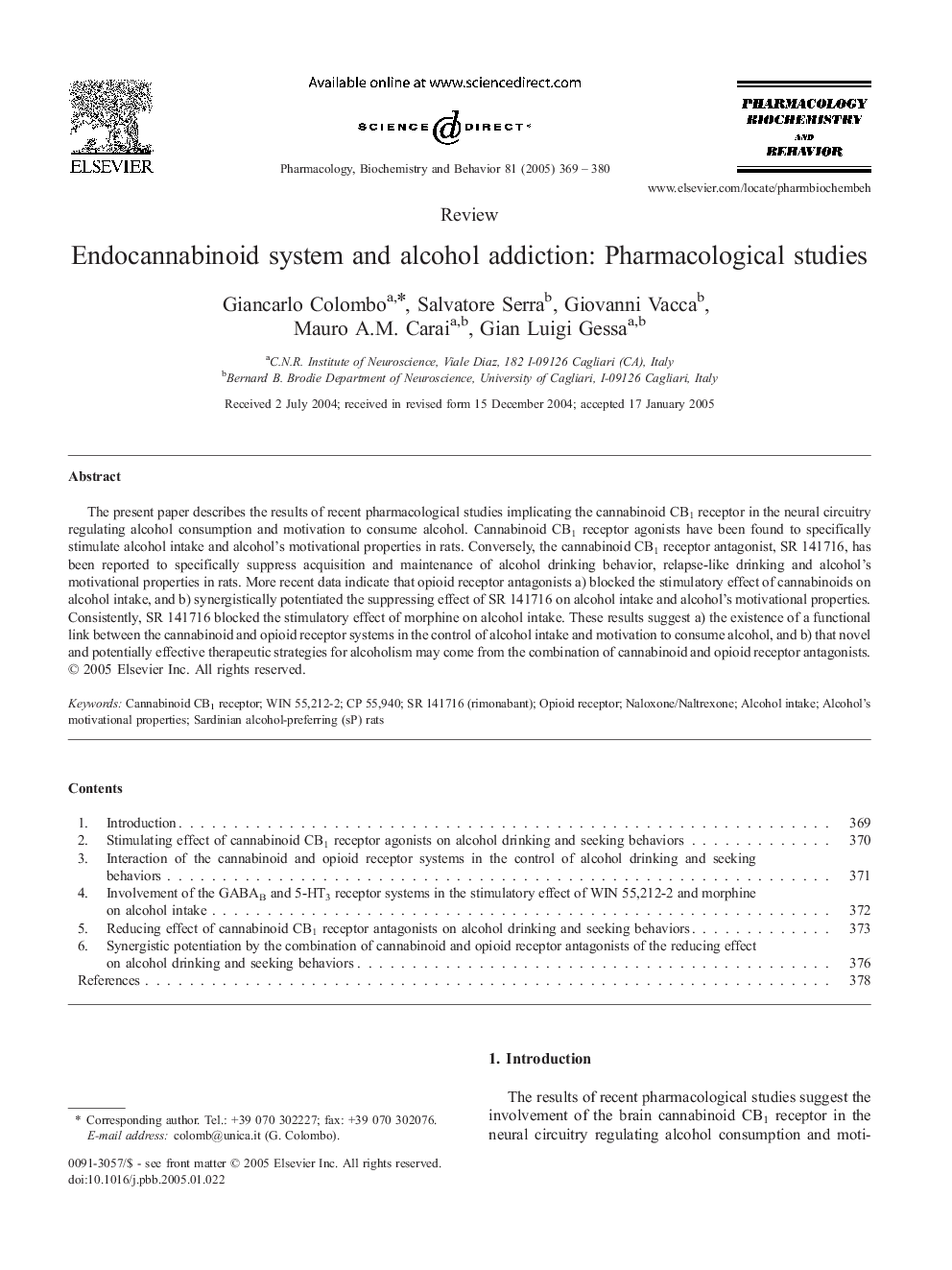| Article ID | Journal | Published Year | Pages | File Type |
|---|---|---|---|---|
| 10838730 | Pharmacology Biochemistry and Behavior | 2005 | 12 Pages |
Abstract
The present paper describes the results of recent pharmacological studies implicating the cannabinoid CB1 receptor in the neural circuitry regulating alcohol consumption and motivation to consume alcohol. Cannabinoid CB1 receptor agonists have been found to specifically stimulate alcohol intake and alcohol's motivational properties in rats. Conversely, the cannabinoid CB1 receptor antagonist, SR 141716, has been reported to specifically suppress acquisition and maintenance of alcohol drinking behavior, relapse-like drinking and alcohol's motivational properties in rats. More recent data indicate that opioid receptor antagonists a) blocked the stimulatory effect of cannabinoids on alcohol intake, and b) synergistically potentiated the suppressing effect of SR 141716 on alcohol intake and alcohol's motivational properties. Consistently, SR 141716 blocked the stimulatory effect of morphine on alcohol intake. These results suggest a) the existence of a functional link between the cannabinoid and opioid receptor systems in the control of alcohol intake and motivation to consume alcohol, and b) that novel and potentially effective therapeutic strategies for alcoholism may come from the combination of cannabinoid and opioid receptor antagonists.
Keywords
Related Topics
Life Sciences
Biochemistry, Genetics and Molecular Biology
Biochemistry
Authors
Giancarlo Colombo, Salvatore Serra, Giovanni Vacca, Mauro A.M. Carai, Gian Luigi Gessa,
